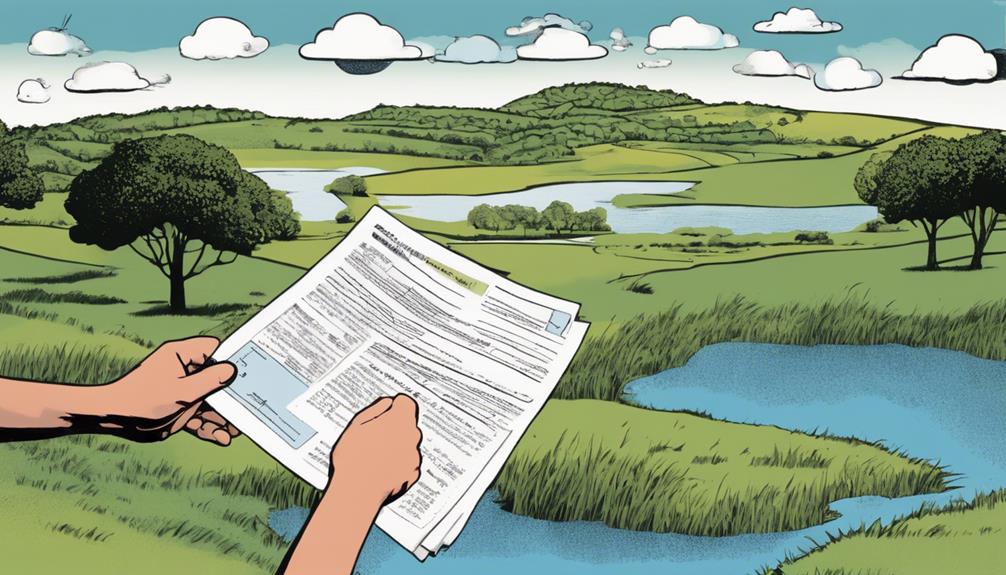When you think about setting up utility services in Wisconsin, the idea of a Utility Deposit Bond might not cross your mind. Instead of sinking a hefty sum into a cash deposit, you can opt for a bond that offers both flexibility and financial relief. This option could be particularly appealing if your credit history isn't perfect. But what does the process look like, and what are the real benefits? Understanding the nuances could change how you manage your expenses moving forward. Let's explore this further.
Understanding Utility Deposit Bonds

When you're looking to establish utility services, you might come across the term "utility deposit bond." Essentially, this bond acts as a financial guarantee that you'll pay for the services you use. Instead of paying a cash deposit upfront to the utility company, you can secure a bond through a surety company. This bond provides peace of mind for the utility provider, ensuring that they'll receive payment even if you default.
You'll typically need to apply for this bond, and the surety company will evaluate your creditworthiness. If approved, you'll pay a premium, which is usually a percentage of the bond amount. The bond amount often corresponds to the expected utility usage, serving as a safety net for the provider.
It's important to understand that while a utility deposit bond can save you from tying up cash, it doesn't absolve you of your responsibility to pay your utility bills on time. If you fail to pay, the surety company may cover the costs, but you'll still owe them for the amount paid.
Knowing these details can help you make an informed decision when setting up your utility services.
Benefits of Utility Deposit Bonds
Utility deposit bonds offer significant advantages for anyone looking to establish utility services without the burden of a large upfront cash deposit. By opting for a bond, you can free up your cash flow for other important expenses, allowing you to invest in necessities or save for future needs. This flexibility is especially beneficial for new tenants or homeowners who may already be facing numerous costs.
Additionally, utility deposit bonds are often more accessible than traditional cash deposits. If you have a less-than-perfect credit history, you might find it challenging to secure utility services with a standard deposit. A bond can help bypass some of these hurdles, making it easier for you to establish essential services.
Another key benefit is that utility deposit bonds typically come with lower costs than a cash deposit. Instead of tying up a large sum of money, you'll pay a smaller premium for the bond, which can be more manageable.
Lastly, once you've fulfilled your obligations, you can receive a refund on the bond premium, providing further financial relief. Overall, utility deposit bonds offer a practical solution for managing utility service requirements efficiently.
How to Obtain a Bond

Obtaining a utility deposit bond is a straightforward process that can save you both time and money.
First, you'll want to research various bonding companies or insurance providers that offer utility deposit bonds in Wisconsin. Look for a reputable company with good reviews and competitive rates, as positive customer feedback highlights the efficiency and reliability of bond providers.
Once you've selected a provider, you'll need to fill out an application. This typically requires basic information about yourself, your financial history, and details about the utility service you're looking to secure.
Make sure to provide accurate information to avoid delays in processing your bond.
After submitting your application, the bonding company will review it and assess your risk. They may ask for additional documentation, such as proof of income or credit history.
Once approved, you'll receive a quote that outlines the terms and conditions of the bond.
If you agree to the terms, you'll pay the premium, and the bond will be issued.
Be sure to keep a copy of the bond for your records, as you'll need it when setting up your utility service.
With your bond in hand, you're ready to move forward with your utility provider!
Costs Associated With Bonds
Many people wonder about the costs associated with utility deposit bonds. The primary expense you'll face is the premium you pay to the surety company. This premium is typically a percentage of the bond amount, often ranging from 1% to 10%, depending on various factors. Your credit score, financial history, and the bond amount itself will all influence this rate, which is essential for ensuring compliance with licensing laws and regulations in your industry to hold businesses accountable.
For instance, if you need a $1,000 bond and your premium rate is 3%, you'll pay $30 initially. It's essential to remember that this premium is usually non-refundable, even if you don't end up needing the bond for long.
In addition to the premium, some sureties might charge a small processing fee when issuing the bond. You should also consider the possibility of renewing the bond annually, as this may incur additional costs over time.
Lastly, keep in mind that maintaining good credit and a solid financial standing can help you secure lower premium rates. So, it's worth investing time in improving your financial profile before applying for a utility deposit bond.
Common Myths and Misconceptions

There are several myths surrounding utility deposit bonds that can lead to confusion for individuals seeking them. One common misconception is that utility deposit bonds are only for people with poor credit. In reality, these bonds are often required for anyone moving into a new utility service area, regardless of their credit history.
Another myth is that securing a utility deposit bond is an overly complicated process. In truth, obtaining a bond is usually straightforward and can often be done online with minimal paperwork.
Some folks believe that utility deposit bonds are only beneficial for renters. However, homeowners may also need these bonds when establishing utility services, especially in certain states like Wisconsin.
Additionally, there's a misconception that the bond amount is non-refundable. While the bond acts as a guarantee for the utility company, once your account is closed in good standing, you typically won't lose the bond amount—it's released back to you.
Understanding these myths can help you navigate the process more effectively and ensure you're well-prepared for your utility bond needs. Don't let misinformation hold you back from accessing essential services.
Conclusion
In conclusion, a Utility Deposit Bond in Wisconsin can be a smart choice for managing your utility service costs. It helps you avoid hefty cash deposits while ensuring you have access to essential services. By understanding the benefits and the process of obtaining a bond, you can make a more informed financial decision. Don't let credit history hold you back—consider a Utility Deposit Bond to keep your cash flow flexible and your utilities connected.


